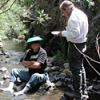I Determine How Much Ai Understands About Gold Detecting
-
Similar Content
-
- 30 replies
- 1,980 views
-
- 2 replies
- 592 views
-
- 4 replies
- 737 views
-
- 15 replies
- 1,392 views
-
- 9 replies
- 645 views
-
- 10 replies
- 1,312 views
-
-









Recommended Posts
Create an account or sign in to comment
You need to be a member in order to leave a comment
Create an account
Sign up for a new account in our community. It's easy!
Register a new accountSign in
Already have an account? Sign in here.
Sign In Now